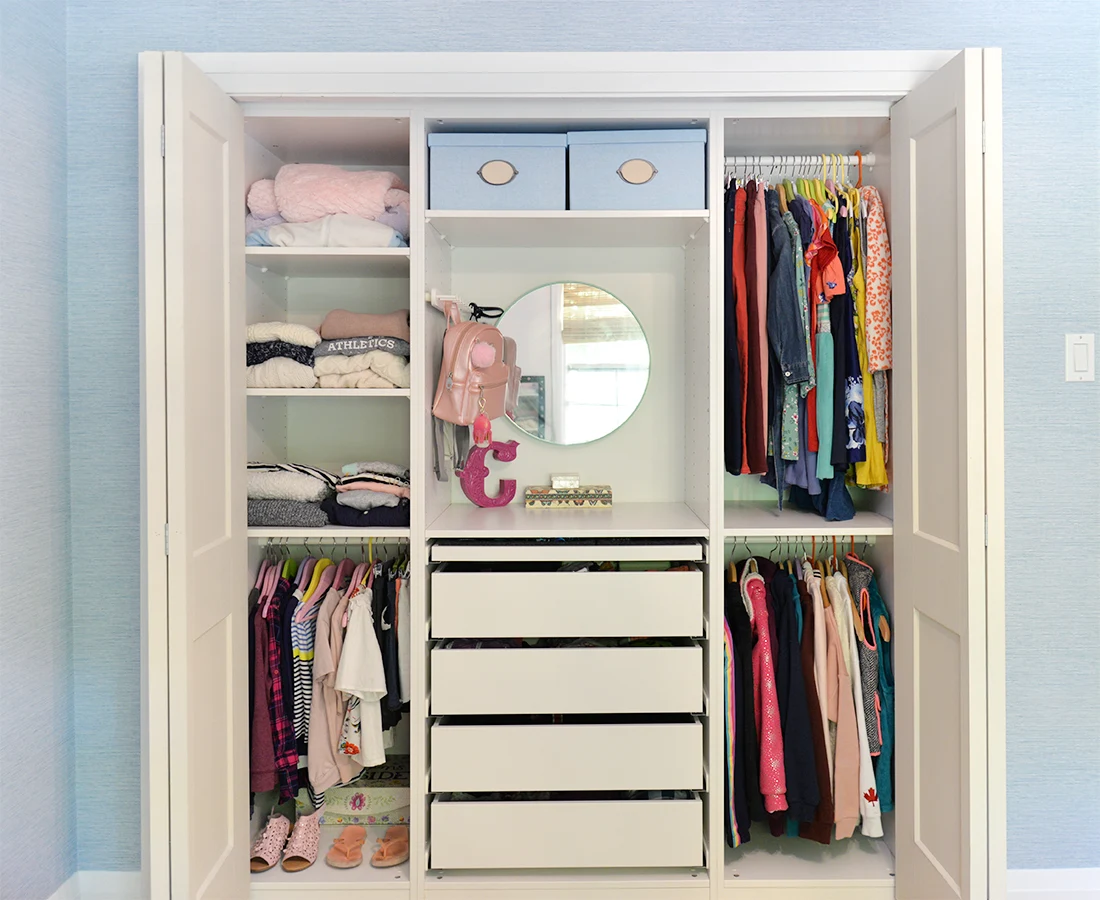As a parent, one of my never-ending challenges has been to keep my kids’ closets organized. It seems like an impossible task at times, with clothes strewn all over the floor, mismatched socks hiding in every nook and cranny, and toys making a tornado-like mess. But, through trial and error, I’ve discovered that teaching kids the importance of organization at an early age can make a world of difference.
Now, you might be thinking, “Why bother? They’re just kids!” Trust me, I’ve had that thought too. But here’s the thing – when we teach our children how to be organized, we are equipping them with essential life skills that will benefit them in the long run. Plus, having an organized closet not only saves time and hassle but also fosters a sense of responsibility and independence in our little ones. So, let’s dive into some strategies that have worked wonders for me.
1. Make it fun:
Turning closet organization into a game can do wonders. Start by involving your kids in the process – let them pick out colorful bins, shelves, or hangers that resonate with their interests. You can even turn it into a competition – who can put away the most clothes in the least amount of time? Adding such elements of fun and challenge ensures that kids view organization as an enjoyable activity instead of a chore.
2. Create designated spaces:
One of the key lessons I’ve learned is that it’s important to establish designated spaces for different items. I’ve found that clear bins or baskets with labels for socks, pajamas, and accessories work wonders. This not only makes it easier for kids to find what they need but also encourages them to put things away in the correct place. It’s like a tiny treasure hunt – except with clothes!
3. Simplify the process:
Let’s face it – kids’ closets can quickly become a cluttered mess. To combat this, try rotating the clothes based on the season. This not only reduces the number of items in the closet but also keeps the space tidy. You can also involve your child in the process of choosing what to donate, making them feel like they have a say and teaching them the value of letting go of things they no longer need.
4. Set a routine:
Incorporating closet organization into your child’s daily routine makes it a habit. Make it a point to spend a few minutes at the end of each day together, putting away clothes and straightening up the closet. This not only keeps things organized but also creates a sense of accomplishment and pride in your child for taking care of their possessions.
5. Teach the art of folding and hanging:
Showing your children how to properly fold and hang their clothes is a simple yet significant skill that will stay with them throughout their lives. Invest some time in demonstrating different folding techniques and organizing clothes on hangers. Start with easy items like t-shirts or pajamas, and gradually introduce more complex items like pants or dresses. By teaching them these basic skills, you’re empowering them to take control of their own space and belongings.
6. Lead by example:
Kids often mirror what they see their parents do. So, if you want your child to be organized, it’s essential to lead by example. Let your child see you taking care of your own items, keeping your own closet organized, and demonstrating the importance of cleanliness. By being a role model, you’re showing them that organization is a lifelong venture, not just a phase.
7. Celebrate milestones:
Lastly, make sure to celebrate your child’s achievements along the way. Whether they successfully put all their clothes away, finally learn how to fold a shirt, or maintain an organized closet for an extended period, acknowledge their efforts. This encouragement fosters a sense of pride and reinforces the positive habits they’ve developed.
Ultimately, teaching kids how to organize their closets is more than just a practical skill; it’s an investment in their future. By instilling a sense of responsibility, independence, and order at an early age, we are setting our children up for success later in life. So, let’s start making organization a part of their daily routine and watch as they flourish into organized individuals who are ready to take on the world!
